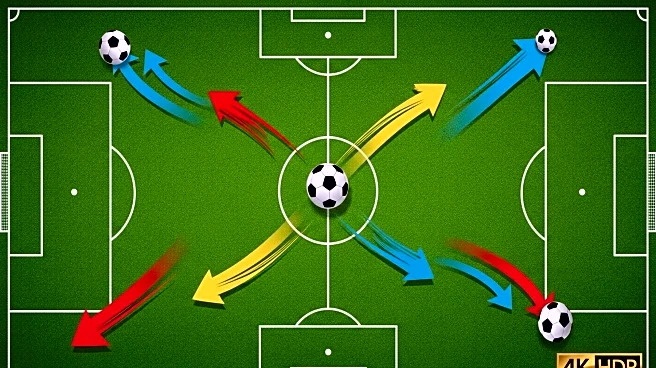What's Happening?
Pep Guardiola's Manchester City recorded a historic low possession rate in their recent match against Arsenal, marking a significant shift in their playing style. Traditionally known for their possession-based approach, City held only 33.2% of the ball, the lowest in Guardiola's career. This change reflects a broader tactical evolution towards more direct play and counter-attacking strategies, as evidenced by Erling Haaland's recent performances. The adaptation is partly due to the increasing physical intensity of the Premier League and the need to leverage new signings like Tijjani Reijnders and Gianluigi Donnarumma, who excel in transition and long passing.
Why It's Important?
Guardiola's shift in tactics is significant as it may influence the broader Premier League landscape. Historically, Guardiola's strategies have set trends in English football, and this move towards direct play could prompt other teams to adapt similarly. The change also highlights the evolving nature of the league, where physicality and speed are becoming more crucial. For Manchester City, this adaptation could enhance their competitiveness, allowing them to exploit the strengths of players like Haaland and Reijnders. The shift may also impact how opponents prepare for matches against City, potentially altering the dynamics of Premier League competition.
Beyond the Headlines
Guardiola's tactical evolution raises questions about the future of possession-based football in the Premier League. As teams increasingly prioritize direct play, the traditional emphasis on ball control and build-up may diminish. This shift could lead to changes in player recruitment, with clubs seeking athletes who excel in fast-paced, physical environments. Additionally, the adaptation reflects broader trends in global football, where speed and counter-attacking are gaining prominence. Guardiola's willingness to change his approach also underscores the importance of managerial flexibility and innovation in maintaining competitive advantage.









